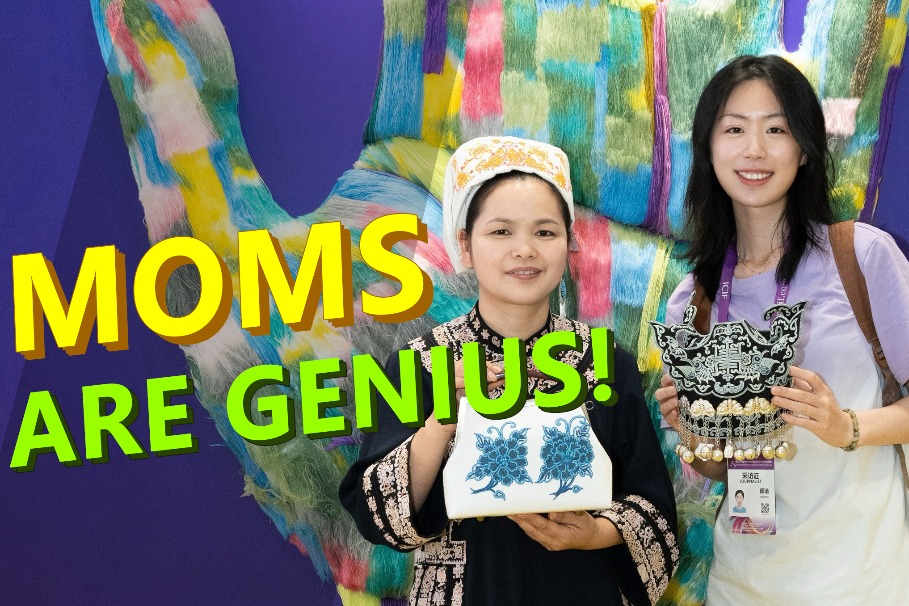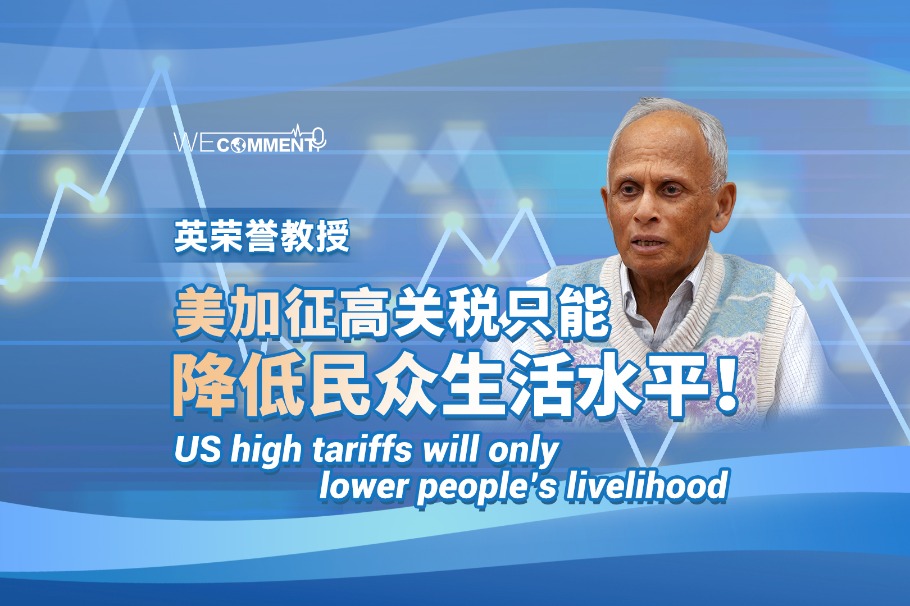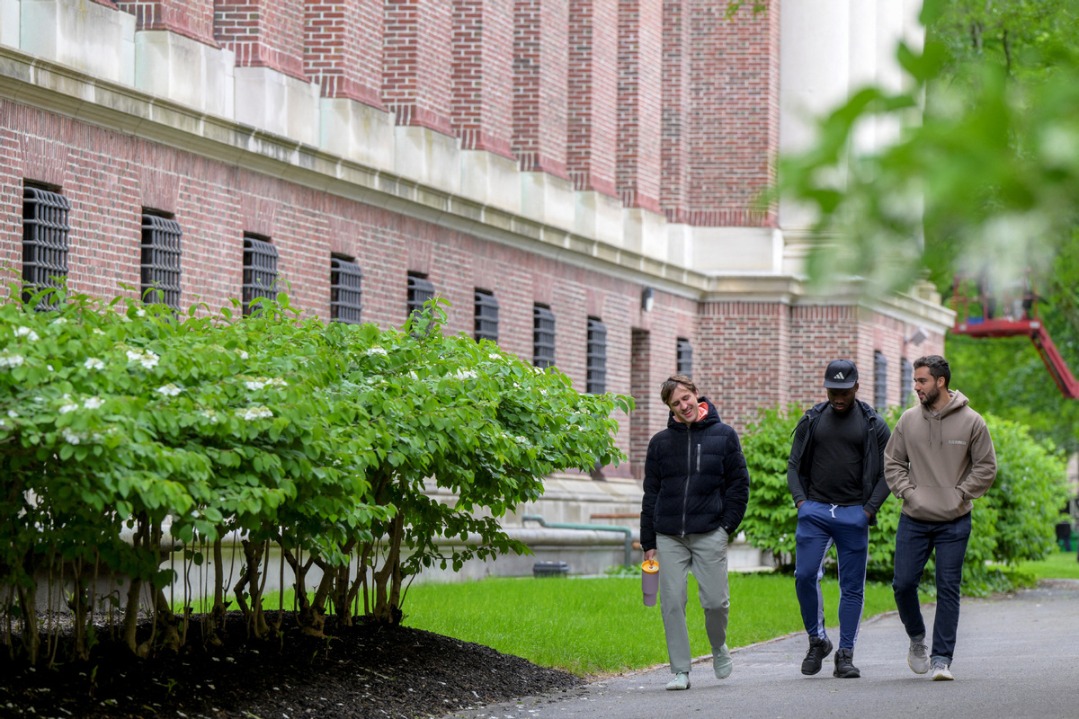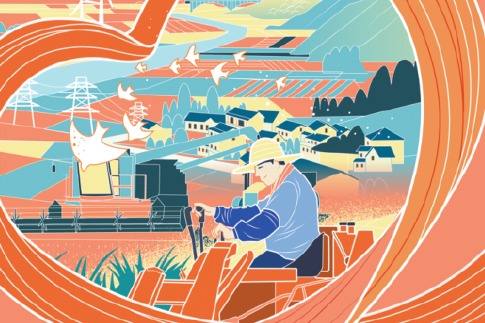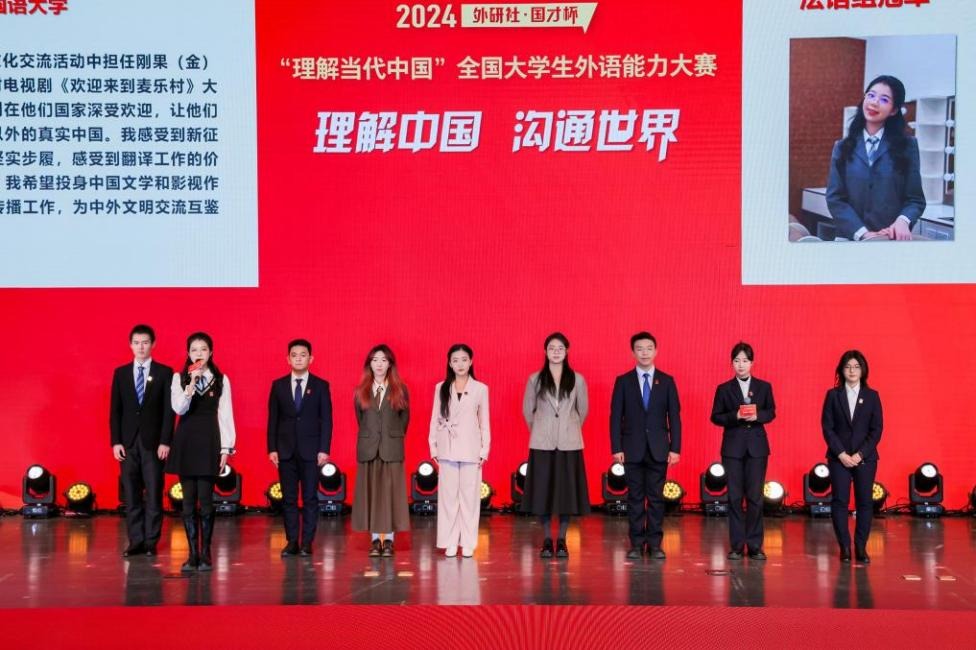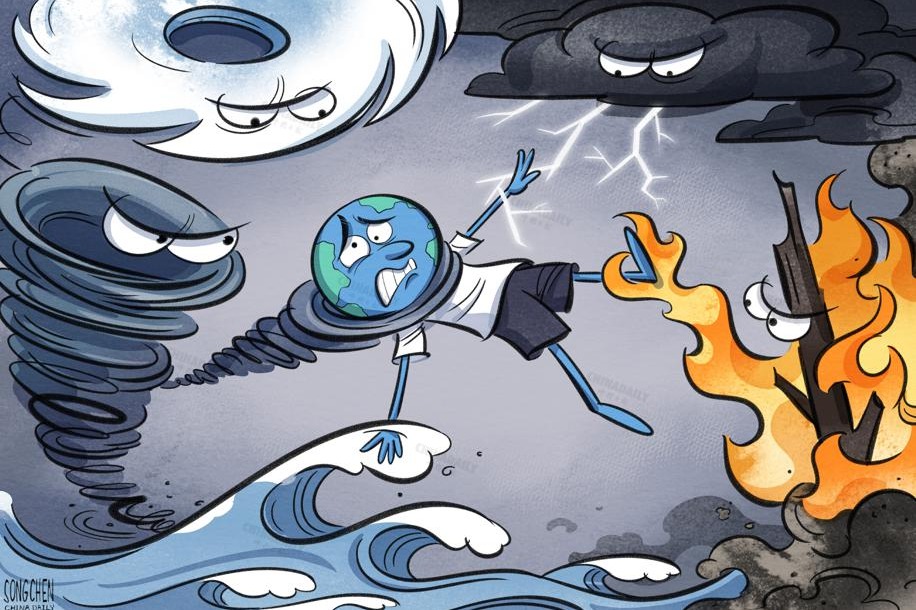The weight of ambition


Somalia is reclaiming its place among the community of nations with purpose and determination
Two decades ago, I arrived in Beijing as a wide-eyed student from Somalia, drawn by curiosity and the promise of learning in a land often portrayed as distant and enigmatic. What I found instead was a world that would reshape my understanding of resilience, governance and the mechanics of development. I could never have imagined then that my personal journey would intertwine so deeply with China's evolution, or that I would one day return — not as a student, but as Somalia's ambassador, walking through the same doors where my journey once began.
Today, when I'm asked what two lessons from China I believe hold the most value for Africa, my answer is unwavering: governance and modernization. These are not abstract ideas to me — they are lived experiences, studied closely through the lens of time and tested through engagement. I offer this reflection not as a scholar observing from afar, but as someone who has walked the alleys of Chinese villages, witnessed the pace and precision of reform, and now carries those insights into the service of my country.
Chinese governance is defined by a deeply structured approach to problem-solving. It is goal-oriented, capable of long-term planning, and deeply integrated with delivery mechanisms that extend to the village level. The system prioritizes stability, cohesion and service delivery, and adapts constantly to emergent challenges. Meanwhile, Chinese modernization is not simply about infrastructure or GDP growth. It is about the synchronization of material advancement with cultural confidence, social equity and environmental stewardship. It is about improving lives, not just statistics.
Why should this matter to Africa? Because Africa, like China, is rising from a complex past of external impositions, internal fragmentation and persistent underdevelopment. Africa is seeking not a mirror of China's path, but the tools to chart its own — with lessons adapted, not adopted. The story of China's rise offers Africa a valuable toolkit for transformation: patient planning, investment in people, and unrelenting focus on the implementation of national objectives.
In the current global landscape, Africa must be economically empowered to stand strong. With over 1.4 billion people, Africa has the chance to become a continent of producers, not merely consumers. We can feed the world, fuel it with renewable energy, and innovate from the margins. And what better partner can help us rise than China? China has the knowledge, the technology, the will and, perhaps most importantly, the discipline to help get it done.
Economic development is the most sustainable cure for insecurity and political instability. Guns fall silent when people have jobs, when youth have hope, when institutions deliver, and when dignity is restored.
Why should this matter to Somalia?
Somalia today stands on the brink of a new chapter. It is emerging — slowly but resolutely. It is blessed with two great rivers, vast stretches of arable land, untapped marine wealth and an entrepreneurial spirit unmatched in the region. It has natural ports, a young population and a geography that places it at the crossroads of the Red Sea, the Indian Ocean and the Horn of Africa.
China has long recognized this potential. The partnership between China and Somalia is not new. It is historic, and visible in the everyday lives of Somalis. In the memories of my generation and the generation before me, one image is constant: hardworking Chinese engineers and workers, silently and diligently constructing roads, bridges and hospitals. The only highway connecting northern and southern Somalia was built by China. Over 80 major infrastructure projects have been undertaken with Chinese support. The hybrid rice program, under the guidance of Professor Yuan Longping who developed high-yield rice varieties, brought us rice self-sufficiency and much closer to reaching food security.
And even when Somalia's central government collapsed in 1991, China did not retreat. It stood firm in international fora, defending Somalia's sovereignty and territorial integrity. Humanitarian support flowed in times of imminent crisis. The friendship did not waver; it remained strong and steady.
Today, Somalia is not only transforming — it is reclaiming its place among the community of nations with purpose and quiet determination. It recognizes that true transformation is never immediate. It is forged patiently, through the slow and often painful work of rebuilding institutions, restoring public trust and nurturing hope.
The recently adopted National Transformation Plan reflects this ethos. It is not merely a document of intent; it is a declaration of will. It captures a new national consensus — Somalia must invest in its people, build resilient institutions, and harness its geographic and economic potential to drive long-term prosperity. At its core, the plan acknowledges a truth long understood in development economics: growth without structure is fragile, and potential without strategy is wasted.
The country is focusing on building institutions that can carry the weight of ambition, that are transparent, responsive and grounded in the rule of law. It is investing in the capabilities of the Somali people — not just as beneficiaries of development, but as agents of change. Youth, women, entrepreneurs — they are the engines for the country's renewal.
At the same time, it is reconnecting Somalia to the region and the world. Somalia joined the East African Community last year, becoming its eighth member. This integration into a regional bloc with a combined GDP exceeding $300 billion opens new avenues for trade, investment and policy harmonization, positioning Somalia as a vital link between the Horn of Africa and broader continental markets. Its ports and corridors are once again bridges to markets across the Red Sea, the Gulf and the Indian Ocean. Somalia is a gateway, not a periphery. And it is actively shaping the future through trade, digital connectivity, and strategic partnerships.
Those looking at Somalia from afar should not measure the country by its past fragility, but by its current resolve. They should not overlook it because of the challenges it faces, but re-recognize it because of its possibilities. Somalia is ready — not just to receive investment, but to partner in progress. Its potential is not theoretical. It is real, it is measurable, and increasingly, it is visible.
By scaling up research collaborations and academic exchanges between African institutions, Chinese universities and third-country partners, the intellectual infrastructure for long-term development is being created — solutions that come from shared inquiry, not policy transfer.
Moving beyond extractive engagement to focus on building manufacturing and value-addition hubs, special economic zones and agro-industrial parks, when paired with infrastructure and skills training, can generate employment and build domestic capacity for export-led growth.
On the other hand, investment will not flow unless risk is mitigated. The creation of joint Africa-China risk-sharing instruments is proposed to reduce risks facing private investment in frontier economies. Mixed finance vehicles, sovereign guarantees and political risk insurance mechanisms can catalyze capital where it is most needed.
As we look to the future, the partnership between Somalia and China — and more broadly, between Africa and China — must be defined not only by trade and infrastructure, but by a shared vision of transformation rooted in dignity, equity and mutual respect. Ours is not a story of dependence, but of emergence — of a nation and a continent determined to write their own chapters in the global narrative. And for those who believe in building bridges, Somalia is open, ready and reaching forward.
The author is Somali ambassador to China. The author contributed this article to China Watch, a think tank powered by China Daily.
The views do not necessarily reflect those of China Daily.
Contact the editor at editor@chinawatch.cn.
















